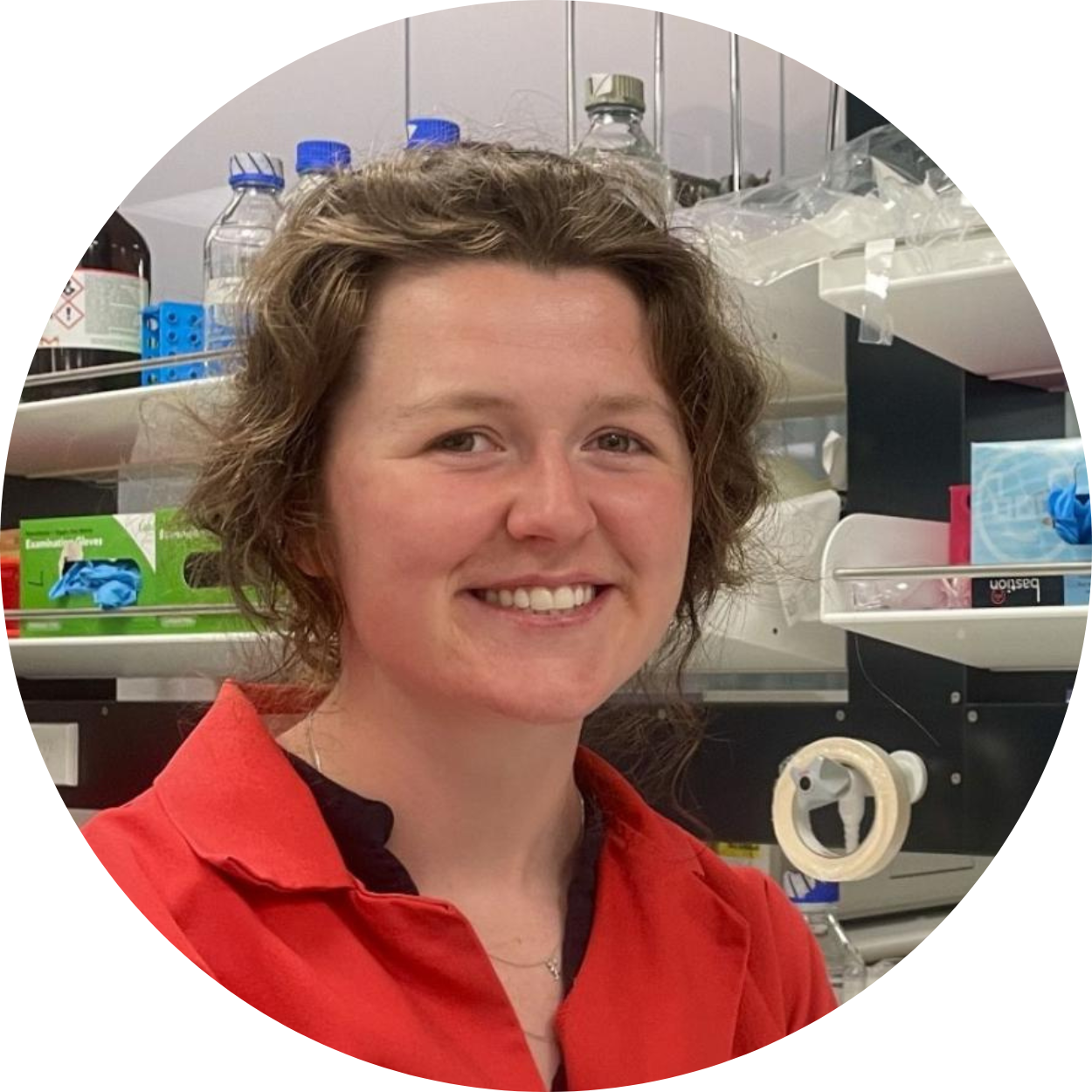2022 Round B Grant Recipients

University of Auckland
$53,479
A tale of two tau assays – is old better than new? A cross-sectional and longitudinal investigation of two plasma total tau assays in samples from the New Zealand Dementia Prevention Research Clinics over the Alzheimer’s disease continuum.
Aotearoa New Zealand’s population is aging. The Dementia Prevention Research Clinics (DPRCs) are a longitudinal study that aims to improve understanding of Alzheimer's Disease (AD) and dementia in Aotearoa, to develop interventions that delay or prevent the progression of less-severe memory problems to dementia. A key objective is to identify a “biomarker signature” that predicts progression from mild cognitive impairment to AD and is detectable in preclinical stages of disease. The DPRCs are investigating blood biomarkers to aid in the prediction, diagnosis, and progression of AD, through international collaboration and the use of cutting-edge technologies.

University of Auckland
$305,598
Investigating the role of Rhes and Hap1 in Huntington's disease using cell reprogramming
Huntington’s disease (HD) is a neurodegenerative disease characterised by expression of mutant huntingtin protein (mHtt) and the selective degeneration of medium-sized spiny neurons (MSNs) in the striatum. It is unclear what is unique about the striatum that causes its selective vulnerability in HD. We will investigate whether two proteins found in the striatum, Hap1 and Rhes, are altered in HD causing mHtt to become toxic and selectively kill MSNs. This will be achieved for the first time using live HD patient-derived MSNs. This project will enhance our understanding of HD and and the long-standing mystery surrounding selective MSN death in HD.

Victoria University of Wellington
$185,233
Immune Phenotypes of a New Glioblastoma Pre-Clinical Model
Glioblastoma, or grade IV primary brain cancer is a devastating diagnosis. There are few options for therapy, but immunotherapy, activation of the patients own immune system to eliminate the tumor is a very appealing option. However, immunotherapy has not yet been successful in glioblastoma, because we haven't been able to study in detail how the cancer cells interact with the immune cells. We have developed a new model of glioblastoma that integrates key biological components of glioblastoma cells with a fully functional immune system. We will characterise this model to see how well it can work.

University of Otago
$286,082
Role of prolactin-responsive proopiomelanocortin (POMC) neurons in the regulation of appetite
New Zealanders are among the most obese in the world. Genetic studies show that the brain plays a key role in control of body weight (with individual variation in body weight largely genetically determined). We have found that the ‘pregnancy and lactation’ hormone prolactin can influence key neurons involved in appetite. Using cutting-edge neuroscience techniques, we will investigate how prolactin acts to change the function of these neurons and promote weight gain. This might be normal in pregnancy, but could occur abnormally in conditions when prolactin is inappropriately high, such as in people on antipsychotic medications.

University of Auckland
$234,061
Family Studies in Motor Neuron Disease
New Zealand has among the highest rates of Motor Neuron Disease (MND) globally. International studies suggest that 5% of MND runs in families, but in our genetics studies nearly one third of NZ participants were from MND families. We are working with 32 MND families; 3 identify as Māori, 13 carry a mutant C9orf72 gene, and 5 (16%) have an as-yet-unknown gene. We now seek to conduct 'family studies'; identifying additional NZ MND family members in NZ and abroad to find unknown causal genes and reveal patterns of inheritance and manifestation in NZ MND families.

Te Whatu Ora Te Matau a Māui Hawkes Bay
$97,279
LIGHTHOUSE II - Randomised double-blind placebo-controlled phase 3 trial of triumeq in Amyotrophic lateral sclerosis
Motor Neuron Disease (MND) is a terminal neurological disease affecting people in the prime of their lives. New Zealand has one of the highest rates of MND in the world. Treatment options are severely limited and clinical trials have not been available in New Zealand. The Lighthouse 2 project is investigating the use of an antiviral to treat reactivation of virus that appears to be a key component in causing MND. This treatment has already been used successfully to treat other conditions, has a well known safety profile and is currently available. This is an exciting opportunity to people with MND.

University of Auckland
$14,914
VR-based Treadmill Gait Training Program for Stroke Patients
The research project will design, develop, and evaluate a low-cost rehabilitation system that could help stroke survivors regain normal walking pattern. This research project involves the use of virtual reality to gamify an exercise task that is usually boring and unpleasant for stroke survivors. The VR-based rehabilitation system will decrease cost and allow most outpatient clinics to provide this therapy to their patients.

Victoria University of Wellington
$14,869
Analysis of immune cell types to predict clinical response in multiple sclerosis
How is it that the efficacy of medications is different between multiple sclerosis patients? Most current treatments target the immune system to improve symptoms. Dr. Robichon’s research will focus on analyse and compare the immune cells of naïve MS patients and MS patients on disease-modifying therapies within the blood. With this information she will generate a relationship between treatment and successful treatment response.

Matai Medical Research Institute
$208,513
The difference a picture can make: Integrating multimodal neuroimaging to understand differences in clinical outcomes following mild traumatic brain injury.
Mild traumatic brain injury – also known as concussion – is an “invisible” injury because there is no noticeable bruising or swelling and standard medical imaging techniques do not show any abnormalities. Yet, up to 50% of people who suffer a concussion experience reduced quality of life 6-12 months after their injury. This project aims to make this “invisible” injury visible by combining multiple cutting-edge forms of MRI to improve our knowledge of concussion. This work could transform our capability to understand why some people recover slowly after concussion, what treatments they need, and how concussions might contribute to cognitive decline later in life.

University of Auckland
$214,376
The effect of α-synuclein on meningeal lymphatic function in Parkinson's disease
The development and progression of Parkinson’s disease is poorly understood, however, the abnormal build-up of the pathological protein α-synuclein is the leading hypothesis. α-synuclein can be cleared from the brain through various mechanisms but recently, the meningeal lymphatic system has been shown to be involved in this process. The lymphatic system drains brain waste, however, during aging or in Parkinson’s disease, this system becomes “clogged”, resulting in the build-up of waste, such as α-synuclein. We will investigate the underlying mechanism for the clogging of these brain drains in Parkinson’s disease and the role that α-synuclein may play in this dysfunction.

University of Auckland
$188,682
Does Exendin-4 administration after therapeutic hypothermia reduce neuroinflammation and prevent brain damage after ischemia in the near-term fetal sheep?
In New Zealand, 70 babies a year will develop brain injury due to deprivation of oxygen around birth, leading to death or lifelong disability. The only treatment available is brain cooling, but nearly half of those that are treated still develop disability. Treatments to use alongside brain cooling are urgently needed to improve outcome. Unresolved inflammation, even after brain cooling, likely contributes to ongoing impairments. I propose targeting inflammation with a drug called Exendin-4 can further reduce brain injury. This research will provide crucial information on how to improve the quality of life for these babies and their families.

University of British Columbia
$133,500
A deep learning approach to the electrophysiology of the cognitive control of saccades
Artificial intelligence (AI) is being applied more often to clinical research. This project explores the use of ‘deep learning’ to show where and when the brain prepares an eye movement to the right or the left, and towards or away from a target, by analysing the electrical signals of the brain. As these eye movements are abnormal in disease states such as schizophrenia, neurodegenerative dementias, and traumatic brain injury, these first results in healthy subjects will prepare the ground for patient studies, to help us understand the cognitive dysfunction responsible for their difficulties with motor planning and control.

University of Otago
$151,119
Investigating the Potential of Targeting Long Non-Coding RNAs in Glioblastoma
Supervisors: Dr Sarah Diermeier, Assoc Prof Stephanie Hughes and Dr Tania Slatter, University of Otago
Glioblastoma (GBM) is the most common form of brain cancer in adults. It is both highly aggressive and almost always fatal, with a five-year survival rate of approximately 4%. The few GBM treatments currently available offer very little improvement in survival time. As such, this research aims to investigate the development of new GBM treatments. The potential of a new class of GBM therapies will be assessed using a three-dimensional model of the brain which can be cultured in the lab. This research will provide insight into the potential benefit of these new therapies to GBM patients.

Victoria University of Wellington
$151,160
Investigating the Role of the Kappa Opioid Receptor in Promoting Remyelination and Repair in Multiple Sclerosis
Supervisors: Dr Bronwyn Kivell and Prof Anne La Flamme, Victoria University of Wellington
Multiple sclerosis (MS) is a neurological disease affecting 2.8 million people worldwide including 4,000 New Zealanders. The disease causes significant damage to signal-sending neural cells resulting in debilitating mental and physical disability. There is currently no cure for MS, but novel treatments that aim to repair damage to neural cells are a promising avenue. Our team is at the forefront of drug-development for MS treatment, and have many drug candidates showing great promise in preclinical models of disease. This project aims to further characterise our potential new drugs and confirm the relevance of our drug targets using clinical, human brain tissue.

University of Otago
$8,000
Investigating differences in cortical and dopaminergic neuron differentiation using an iPSC-derived PARK9-deficient model
Supervisor: Dr Indranil Basak, University of Otago
Pop culture associates dopamine with euphoria triggering our reward system, but it is much more significant for coordinating signals in our brain. When dopamine neurons begin to die, Parkinson’s disease develops. While early disease affects dopamine neurons, another set of neurons called cortical neurons remain unaffected until a much later stage of the disease. We want to identify protective mechanisms(s) in cortical neurons that is/are missing from dopamine neurons. In this project, using a cell-based model harbouring a Parkinson’s disease mutation, we will compare how dopamine neurons grow as opposed to those in the outer regions of the brain.

University of Auckland
$8,000
Investigating the neuronal populations affected by tau pathology in Chronic Traumatic Encephalopathy and Alzheimer’s Disease
Supervisor: Dr Helen Murray, University of Auckland
Repetitive head injuries in contact sport can lead to a degenerative disorder called chronic traumatic encephalopathy (CTE). CTE occurs years after an athlete has retired and causes mood and behavioural changes that progressively develop into dementia. We know that toxic tau protein clumps accumulate in CTE, but overall, we know very little about the brain changes in this disease. This project will investigate the types of neurons affected by tau in CTE. The results will address a fundamental knowledge gap and provide insights into the mechanism of brain cell degeneration, which will inform future therapeutic interventions.

University of Otago
$8,000
Changes in ryanodine receptor trafficking in Alzheimer's disease
Supervisor: Assoc Prof Peter Jones, University of Otago
Research has identified possible alternative mechanisms for the development of Alzheimer’s disease (AD). The altered calcium signalling hypothesis states that the memory and cognition deficits of AD are due to dysfunctional signalling within the brain causing a series of negative effects. The altered signalling may be due to changes in the transportation of calcium channels within neurons. This study will use florescent tags to follow the movement of these channels along AD model neurons and control neurons to determine whether altered activity occurs. Results will increase our knowledge of pathomechanisms in AD and potentially provide targets for treatment.
University of Auckland
$1,150
To attend the Australasian Course in Advanced Neuroscience to learn advanced theory and experimental techniques in neuroscience
University of Auckland
$2,654
Attend ASSCR-AGCTS 12th Biennial Conference
St Vincent’s Centre for Applied Medical Research
$365
Sydney Cytometry Winter School
University of Auckland
$1,200
Australasian Winter Conference on Brain Research
University of Otago
$4,361
Travelling to Brodeaux, France to attend and present at BrainConf, including visits to collaborating labs
University of Auckland
$2,734
Two co-investigators on this grant (Brigid Ryan and Asheigh O'Mara Baker) are presenting this work at the leading FTD conference, ISFTD 2022, in France.


